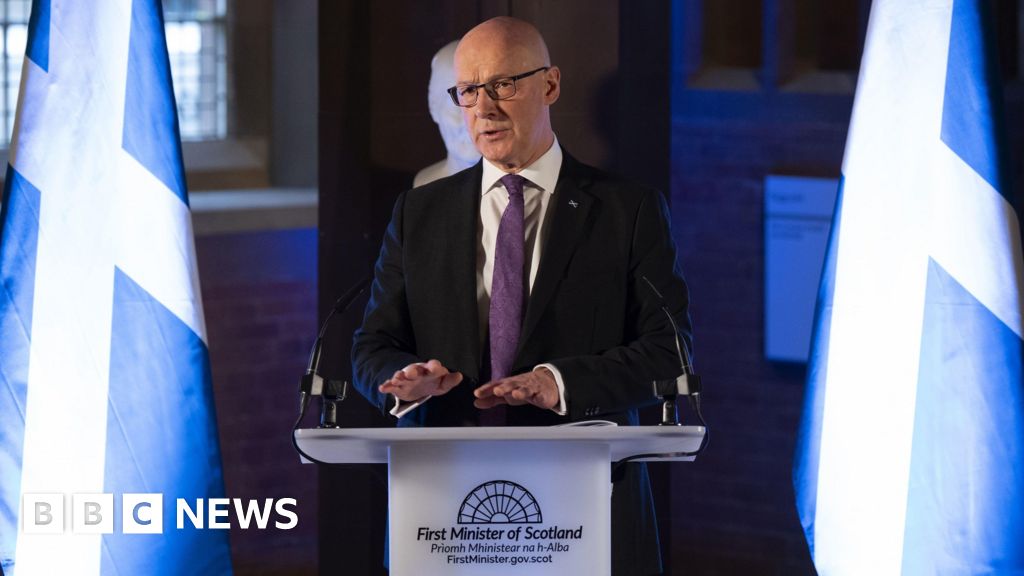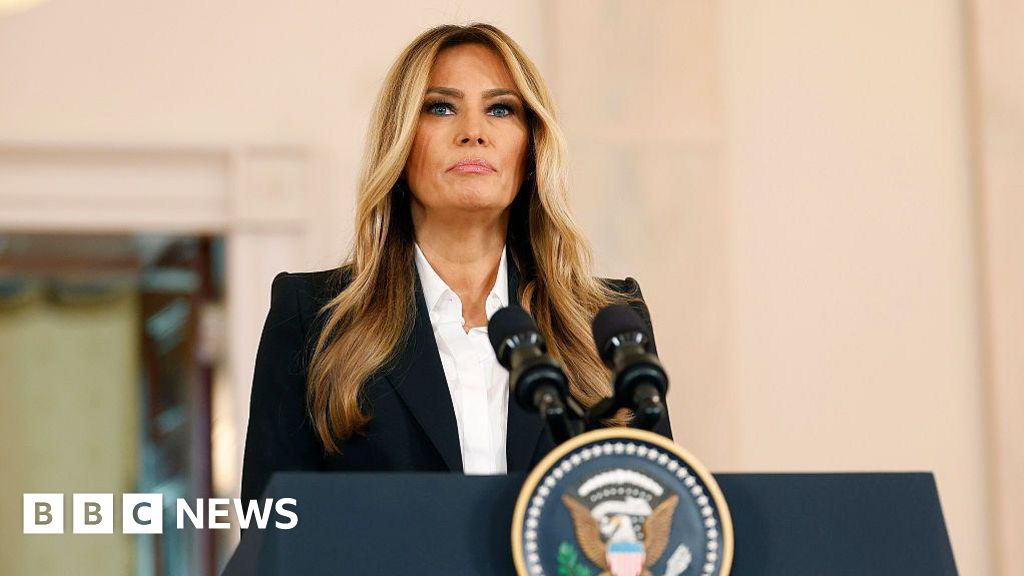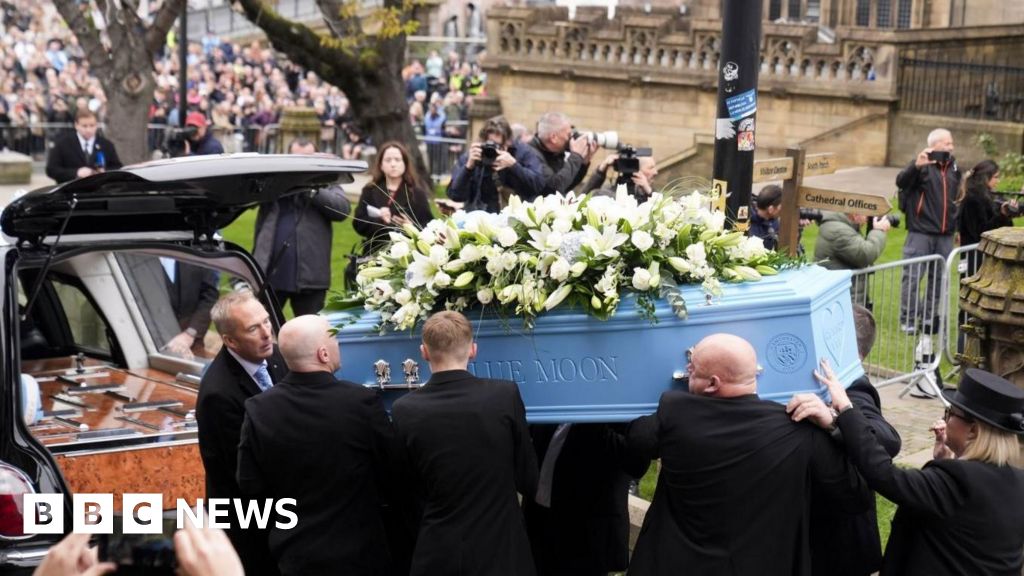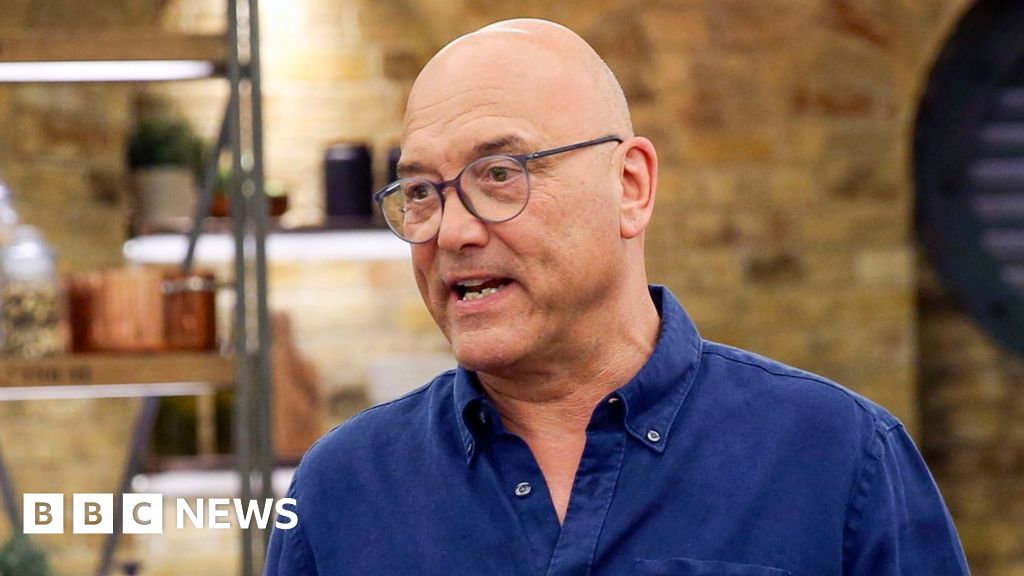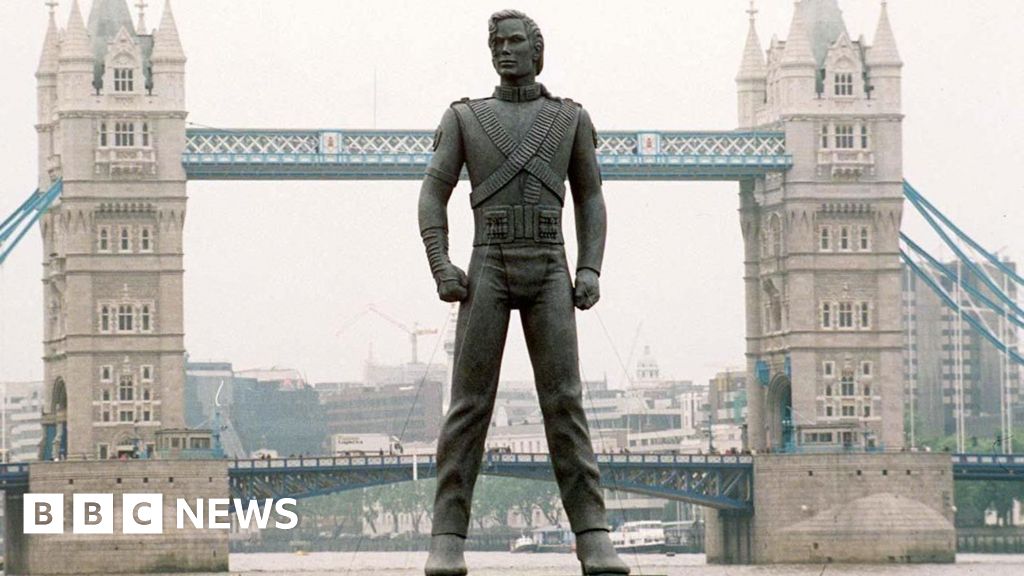Daniel Wainwright
Data journalist, BBC Verify

 Getty Images
Getty Images
Doctors and patient groups warn that the NHS in England is facing an uphill struggle on the government's number one NHS priority – improving hospital waiting times.
They are concerned about the lack of progress towards hitting the 18-week waiting time target, one of Labour's key election pledges. It has not been met since 2015.
Since the election, the proportion of patients waiting less than 18 weeks has improved, but by less than a percentage point.
And an analysis of hospital trusts by BBC Verify found over a third are seeing a smaller share of patients within 18 weeks since the NHS improvement plan was announced in January.
But the government said it was premature to suggest progress was too slow as the NHS had only started to push forward with the government's improvement plan in April. Before that, it had focussed on other priorities, including tackling the very longest waits.
It said the fact waiting times had continued to improve even during winter - the first time this had happened for 10 years - was encouraging.
And in an interview with the BBC, Health Secretary Wes Streeting said progress would go "further and faster" in the coming years, helped by the extra money being invested and the 10-year NHS plan, due to be published next week.
He said lots had been achieved so far, including millions more appointments being carried out and the total number of patients on the waiting list dropping to below 7.4 million, its lowest level for two years.
On the 18-week target, he acknowledged there was "much more to do", before adding: "There's a big challenge here. Are we going to meet it? Absolutely. We are not going to let people down."
The government has promised to hit the target by March 2029, which requires 92% of patients to be seen within 18 weeks.
In January, every hospital trust was given their own individual performance targets to meet by March 2026 as the first step in achieving that pledge.
BBC Verify is launching an interactive tool, which we will update when there is new data, so you can find out how well your local NHS services are doing. We have included NHS trusts in England that had at least 5,000 cases waiting in November.
'I've forgotten what it is like to not be in pain'

 John Winnik
John Winnik
John Winnik, pictured with partner Lyn Williams, has been on a waiting list for nine months
John Winnik does not know when he will get treatment for a problem with his back.
The grandfather from West Yorkshire, who has arthritis, has been on an NHS waiting list for nine months so far - much longer than the 18 weeks the health service says should be the limit.
The 73-year-old paid privately to go to Lithuania for a right hip replacement last year, having spent more than a year on the NHS waiting list.
He's also having injections in his left hip, which will eventually need replacing.
"I'm living in constant pain," said Mr Winnik, a self-employed consultant in the glass lamination industry. "I've forgotten what it is like to not be in pain, to be honest. I haven't played golf for two years and if I do five minutes of gardening, I'm shattered."
Royal College of Surgeons of England president Tim Mitchell said: "The NHS is changing course, but the sails still lack wind.
"Progress is being made in some parts of the country, but it's too slow to meet the government's ambition of hitting the 18-week target by the end of this parliament.
"Delayed operations mean patients left waiting in pain, with their condition potentially deteriorating."
He said the extra money being put into the NHS in the coming years would help, but "serious underinvestment" in infrastructure like operating theatres over the years is hampering efforts.
Deborah Alsina, chief executive of the patient group Versus Arthritis, also has doubts, saying there was scepticism about whether the rapid progress needed could be achieved.
And she added: "It is impossible to overstate the personal, physical and mental toll of being stuck on a waiting list in daily pain, sometimes for years.
"There's also a wider impact on society, with many people on waiting lists having to drop out of work, despite wanting to stay in employment, and becoming increasingly reliant on others."
The interim targets for March 2026 mean trusts either have to be seeing 60% of patients within 18 weeks of referral or improve on their November 2024 position by five percentage points - whichever is the greater.
The NHS overall in England is expected to ensure 65% of patients do not wait longer than 18 weeks - currently less than 60% are.
The majority of trusts have already started making progress, however a BBC Verify analysis shows 50 - more than one third - are now further away from the target since November 2024.
Once the trusts that have improved are taken into account the overall trend though is positive.

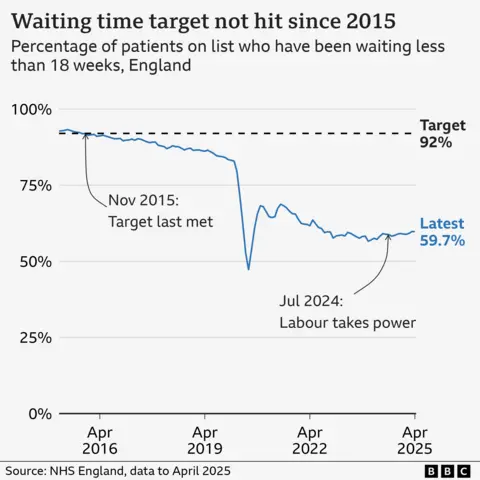
A handful of trusts have already got to where they need to be by next March - as long as they can keep their waiting lists down.
Mersey and West Lancashire Hospitals NHS Trust had more than 48,000 patients waiting less than 18 weeks so far for treatment, 64.2% of the total, in April. That is up from 58.7% in November.
East Sussex Healthcare NHS Trust also reached 60.1% in April, up from 54.9% in November.
The biggest target for improvement was set for The Princess Alexandra Hospital Trust in Harlow, according to our analysis. In November, 41.8% of its patients were waiting less than 18 weeks. By April, that had risen to about 48.8% - one of the biggest improvements in England so far. But it needs to rise further by more than 11 percentage points by next March.
PAHT chief executive Thom Lafferty said they were "delighted" with their progress.
"We recognise the impact for patients who are waiting for care and we are enhancing integration and collaboration with our partners to ensure that patients can access the right care, in the right place, at the right time."
Some trusts have a higher mountain to climb because their figures have dipped since November.
Mid and South Essex NHS Trust started out with 52.8% of patients waiting less than 18 weeks in November. But when the clock started in April, it had fallen to 47%.
Two of its theatres at Basildon Hospital have been closed for work along with some of the trust's procedure rooms and it has had an increase in referrals.
Chief executive Matthew Hopkins said it was putting on extra clinics and had a new orthopaedic procedure room opening soon, adding: "We are confident we will improve our waiting times and improve patient experience."
Others that have fallen despite requiring large improvements include the Robert Jones and Agnes Hunt Orthopaedic Hospital (RJAH) in Shropshire (down from 48.3% to 44.9%) and Countess of Chester, down from 49.6% to 47.1%.
Cathy Chadwick, chief operating officer for Countess of Chester, said more clinics and investment in new technology would bring down waiting lists and the trust was confident of meeting the target by next March.
A spokesman for RJAH said: "We have a clear ambition to hit the target of 60% by March 2026, and are confident that the plans we have put in place will enable us to do so."
Targets in Scotland, Wales and Northern Ireland are different and the interim targets for next March set by the UK government do not apply.
However, the NHS is not meeting the waiting time targets in any nation.
While Scotland aims for 90% of patients to be treated within 18 weeks of referral, in Wales the target is for 95% of patients to wait less than 26 weeks.
In Northern Ireland, 55% of patients should wait no longer than 13 weeks for day case or inpatient treatment.
Interactive tool produced by Alli Shultes, Rebecca French, Ollie Lux Rigby, Chris Kay, Adam Allen, Avi Holden and Rebecca Wedge-Roberts



 3 months ago
139
3 months ago
139


